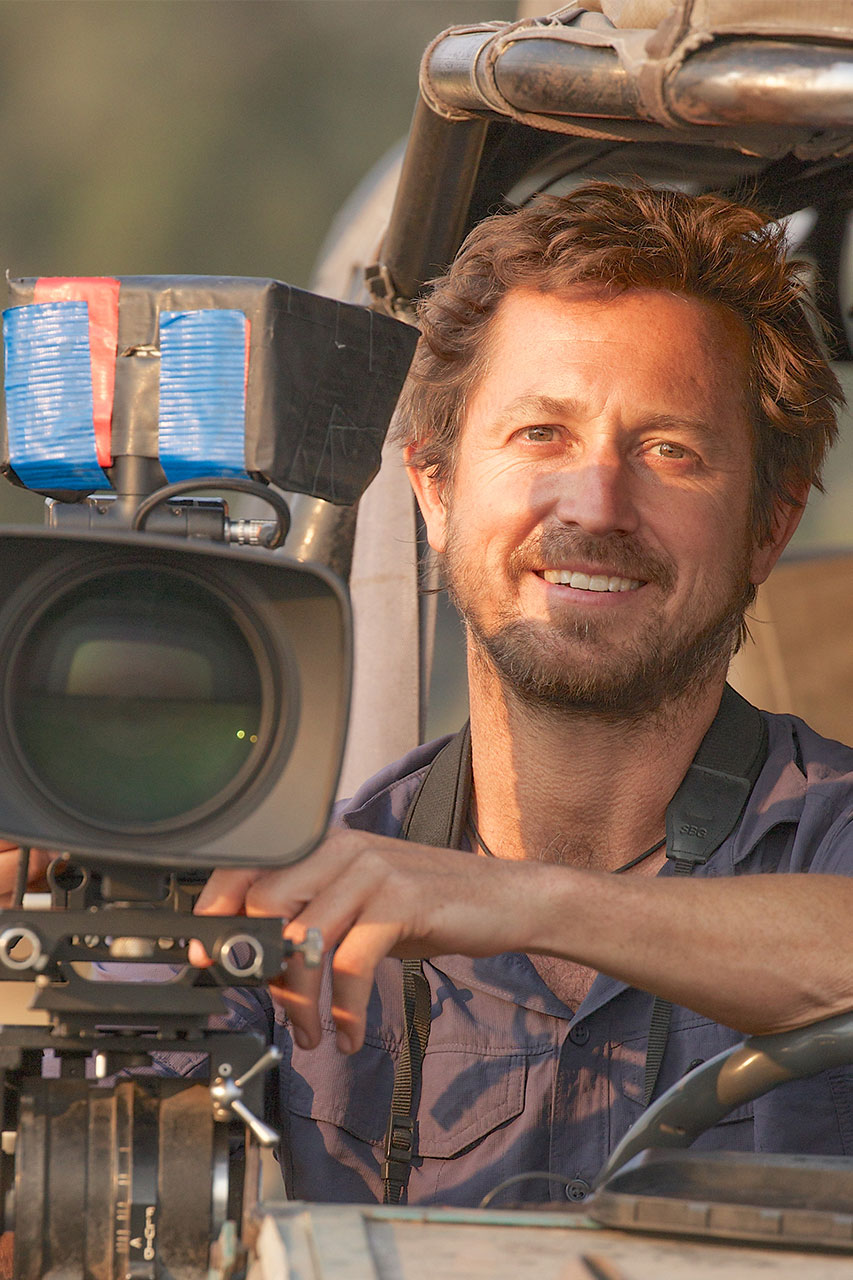
Dr. Chadden
Hunter
WEO AMBASSADOR

There’s no better way to inspire humans in the fight to save our planet than through visual storytelling. And there’s never been greater gathering of environmental storytellers in the Southern Hemisphere than at the upcoming Wild Earth Oceania film festival. Brimming with inspiration, motivation, awe and wonder, the WEO festival will be as spectacular as it is important.

Few people have seen more remote places and wild animals than Dr Chadden Hunter. From the Sahara desert to the Antarctic ice cap, Chadden has not only braved the elements but returned with award-winning footage and death-defying stories.
Originally from the tropical north of Australia, Chadden grew up surrounded by rainforest and coral reef, an immersion in nature that inspired his life journey. He studied marine biology on the Great Barrier Reef then gained a First Class Honours degree at the University of Queensland studying rainforest bowerbirds. His passion for wildlife took him on a wild ‘Gorillas in the Mist’ adventure to study gelada baboons for his PhD in the remote war-torn mountains of Ethiopia. While dodging armed bandits and surviving brain parasites he learnt the local language and realised that to truly conserve nature and not just enjoy it he needed to communicate with a wider audience.
After presenting TV series for National Geographic and PBS he was convinced television was the most powerful tool to reach a large global audience.
As a wildlife filmmaker Dr Hunter has worked alongside Sir David Attenborough for over 20 years, documenting everything from snow leopards in Pakistan to anaconda in the Amazon.
On the BBC series Planet Earth he became known as ‘the guy covered in bat poop’, and whilst directing Frozen Planet he trained as a Divemaster to capture never-before seen footage of orca hunting under Antarctic ice.
His television series, including Life, Wild Arabia, Planet Earth 2 and most recently Seven World One Planet have won over 20 Emmy and Bafta awards.
After decades of filmmaking with Sir David Attenborough, Chadden has now brought his experience home to Brisbane, Australia. As an Executive Producer at Wildbear Entertainment he is developing a new slate of world-class Aussie-made natural history films.
Few people have seen more remote places and wild animals than Dr Chadden Hunter. From the Sahara desert to the Antarctic ice cap, Chadden has not only braved the elements but returned with award-winning footage and death-defying stories.
Originally from the tropical north of Australia, Chadden grew up surrounded by rainforest and coral reef, an immersion in nature that inspired his life journey. He studied marine biology on the Great Barrier Reef then gained a First Class Honours degree at the University of Queensland studying rainforest bowerbirds. His passion for wildlife took him on a wild ‘Gorillas in the Mist’ adventure to study gelada baboons for his PhD in the remote war-torn mountains of Ethiopia. While dodging armed bandits and surviving brain parasites he learnt the local language and realised that to truly conserve nature and not just enjoy it he needed to communicate with a wider audience.
After presenting TV series for National Geographic and PBS he was convinced television was the most powerful tool to reach a large global audience.
As a wildlife filmmaker Dr Hunter has worked alongside Sir David Attenborough for over 20 years, documenting everything from snow leopards in Pakistan to anaconda in the Amazon.
On the BBC series Planet Earth he became known as ‘the guy covered in bat poop’, and whilst directing Frozen Planet he trained as a Divemaster to capture never-before seen footage of orca hunting under Antarctic ice.
His television series, including Life, Wild Arabia, Planet Earth 2 and most recently Seven World One Planet have won over 20 Emmy and Bafta awards.
After decades of filmmaking with Sir David Attenborough, Chadden has now brought his experience home to Brisbane, Australia. As an Executive Producer at Wildbear Entertainment he is developing a new slate of world-class Aussie-made natural history films.

There’s no better way to inspire humans in the fight to save our planet than through visual storytelling. And there’s never been greater gathering of environmental storytellers in the Southern Hemisphere than at the upcoming Wild Earth Oceania film festival. Brimming with inspiration, motivation, awe and wonder, the WEO festival will be as spectacular as it is important.


